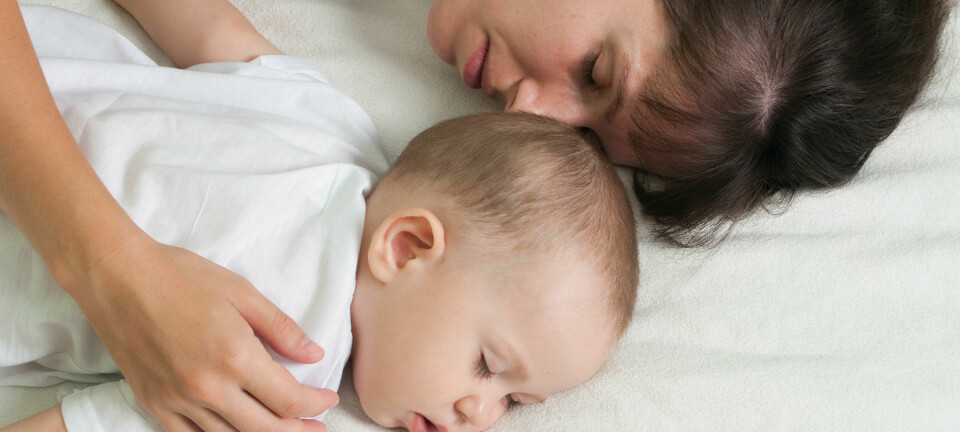
Why do some women develop postnatal depression?
Extreme hormonal changes during pregnancy makes it harder for some women to feel pleasure and motivation.
For some women, the hormonal stress of pregnancy can have serious consequences after giving birth.
New research shows that drastic changes in hormonal levels during pregnancy can lead to postnatal depression.
"Some women are particularly sensitive to the hormonal roller-coaster ride,” says co-author Vibe Gedsø Frøkjær, a senior research fellow with the Department of Neurology, Copenhagen University Hospital, Denmark.
“It's interesting, because this research may eventually help us to understand what happens in the brains of women with postnatal depression," says Frøkjær.
The new study explains the effect on the human brain when our hormones go crazy.
Hormonal changes coincide with mental illness
Both boys and girls experience hormonal changes during puberty but women experience several other major hormone fluctuations throughout their lives especially during childbirth and menopause but also as part of their menstrual cycle.
On each occasion, the risk of developing mental illness is heightened.
"We knew from previous studies that the risk of mental illnesses, such as depression and schizophrenia, appears to be greatest during periods of major hormonal change. Our experiments attempt to understand what causes this risk," says Frøkjær.
In the experiments, Frøkjær and colleagues induced hormonal changes in a group of women. The results showed that about 13 per cent of the women subsequently displayed early symptoms of depression.
The women reported changes in mood, sleep disturbances, and a much greater tendency to cry.
Hormones make the brain less happy
But why did the women show these depressive symptoms?
To find out, the researchers examined a number of healthy women and split them into two groups. One group was given oestrogen to make them skip an ovulation while the second group received a placebo.
The subjects then underwent a brain scan while playing a card game where they could win a sum of money.
"Winning will normally activate the areas of the brain that respond when you are rewarded or feel joy. The brain scans showed that the women who received the hormone didn’t react particularly strongly to the reward of winning the game compared to the placebo group, "says Frøkjær.
Her interpretation is that hormonal changes block the brain from being able to respond to the positive stimuli, which would normally make people feel happy.
Important research to understand postnatal depression
Frøkjær and colleagues still have a long way to go before they have a definitive answer as to what specifically causes postnatal depression. But according to Raben Rosenberg, chief physician and professor at Amager Psychiatric Centre in Denmark, this only makes the study even more relevant.
"We don’t have an explanation for why hormonal changes can cause depression so we need more research like this,” says Rosenberg. “This will help us to get closer to [understanding] some of the mechanisms, and it sets the stage for other researchers to investigate further.”
Rosenberg says that it is impossible to draw any firm conclusions from a game-test like the one used in the study.
"We should never over-interpret scientific results,” he says, but adds that it is important to come closer to understanding why it is that some women have a greater risk of developing depression at certain times compared to men.
Although the study cannot explain why hormones make some women more at risk of mental disorders, it is important to take these women seriously, says Frøkjær.
"We know that there is a particular group of women whose brains make it harder for them to engage in positive experiences and natural behaviour because of hormonal fluctuations. It's really important that we help these women," she says.
---------------------
Read the Danish version of this article on Videnskab.dk
Translated by: Catherine Jex
Scientific links
- 'Role of Serotonin Transporter Changes in Depressive Responses to Sex-Steroid Hormone Manipulation: A Positron Emission Tomography Study', 2015, Biological Psychiatry, DOI:
- 'Sex-Steroid Hormone Manipulation Reduces Brain Response to Reward', 2015, Neuropsychopharmacology, DOI: 10.1038/npp.2015.236









